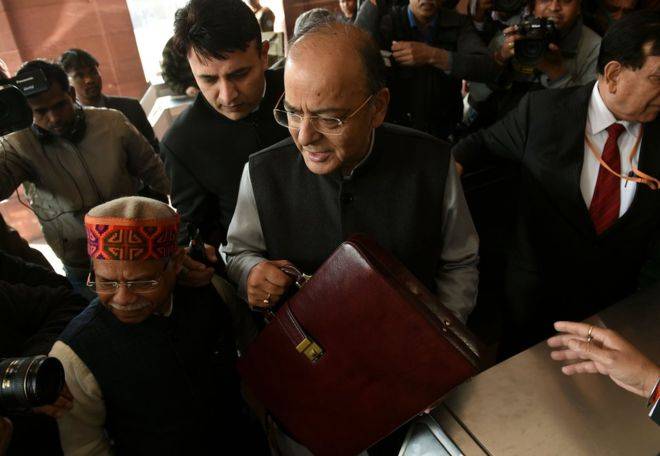India's budget sells dreams for votes
Shares

Before India's finance minister, Arun Jaitley, presented his fifth and final budget, political watchers suspected the general election could happen earlier. Now, they believe it could happen by the end of this year.
India's ruling Bharatiya Janata Party is also gearing up for 10 different state assembly elections during the course of this year.
It was widely expected that Mr Jaitley would do something for the agriculture sector - the bulk of India's workforce still depends on it. Growth in the sector is expected to come in at just 0.91% (gross value added) this financial year.
In India the learning outcomes of children from India's public education system have dropped sharply over the years - nearly half the children in rural India in grades three to eight cannot meet a fairly basic learning standard.
Mr Jaitley acknowledged this in his speech and also talked about improving the quality of teachers.
NEW DELHI: But this has been said before. Apart from allocating more money to primary education, what is required is a change in the way children are taught in Indian schools. It would have been interesting to hear more from the government about this.
Instead of trying to set up a government school in every neighbourhood, the government can give poor parents education vouchers. The parents can then decide which school their children should attend. This would give parents some sort of bargaining power.
But no Indian government likes market-oriented solutions.
On the health front, the government plans to launch a flagship scheme to cover more than 100 million poor and vulnerable families (approximately 500 million individual beneficiaries). The coverage extends up to 500,000 rupees (about $7,800; £5,500) per family per year for secondary and tertiary care hospitalisation.
Mr Jaitley did not elaborate on how the government will pay for or implement such an ambitious scheme.
In short, Mr Jaitley has tried to sell dreams without detailing how the government will achieve them. And, like budgets before it, this one too did not take aim at the structural problems that affect India's economy.
(View point by Vivek Kaul, the author of India's Big Government - The Intrusive State and How It Is Hurting Us)
